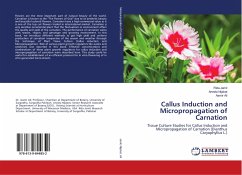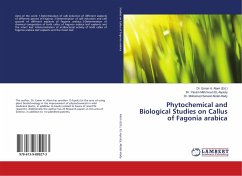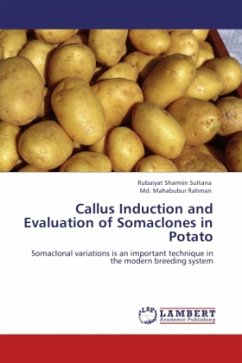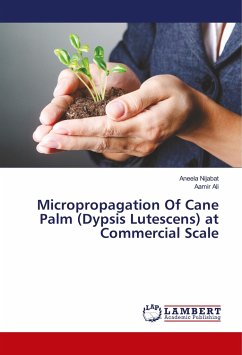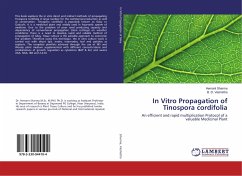Flowers are the most important part of natural beauty of the world. Carnation is known as the "The Flowers of God" due to its aesthetic beauty and beautiful colored flowers. Carnation have a high commercial value as it is one of the top cut flowers traded in international market. Carnation is very sensitive ornamental plant that the fluctuations in environment effect the quality and yield of the carnation. The performance of carnation varies with season, region, and genotype and growing environment. In this book, we introduce different methods to get high yield and uniform production of carnation irrespective of the season and weather through the technique of Plant Tissue Culture (Callus induction and Micropropagation). Role of various plant growth regulators like auxins and cytokinins was reported in this book. Effective concentrations and combinations of these plant growth regulators for callus induction and micropropagation of carnation were described here. This study could beuseful for establishment of an efficient protocol for in vitro flowering of in vitro generated micro-shoots.
Bitte wählen Sie Ihr Anliegen aus.
Rechnungen
Retourenschein anfordern
Bestellstatus
Storno

